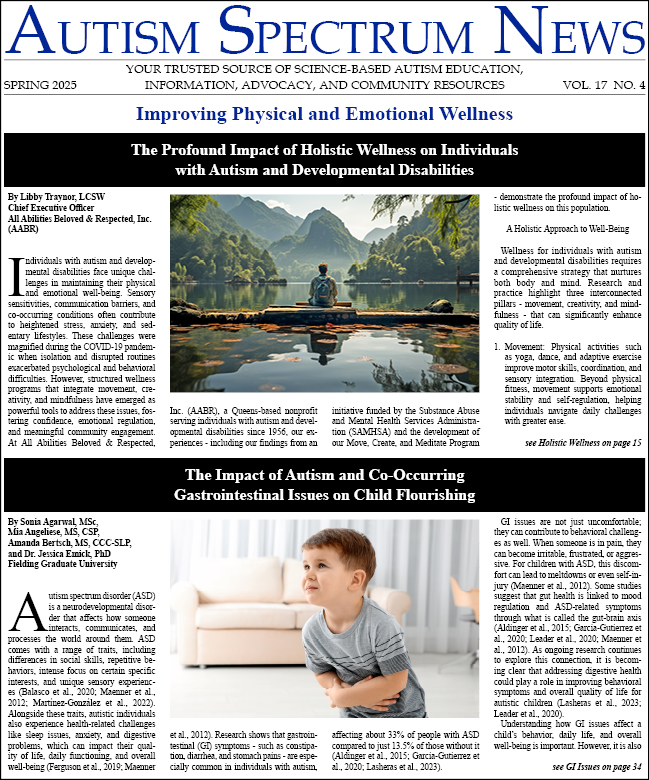-
A Scaffolded Approach to Supporting Individuals with Autism in the Community
The outcomes for young adults with ASDs are well-known and well-documented. Without intervention young adults with ASD fail to reach basic young adult milestones in terms of independent living, employment, and social and romantic relationships. “Research suggests 70% of individuals with ASD will...
-
Suitable Housing and Community Living: Autistics Face Many Unusual Challenges
Whether they can live independently or require assistance and support, autistics need resources to live in communities, of which they often want to be a meaningful part. First and foremost, adequate housing must be made available. Even for those who can live independently and find and maintain...
-
Community Living and Inclusion for Individuals with Intellectual and Developmental Disabilities
It was not long ago that individuals with intellectual and developmental disabilities were cared for in settings quite separate and isolated and were deprived of full integration into their communities. Thankfully, in recent decades, the entitlement to community living and learning opportunities...
-
Community Living in the Era of COVID-19
As we cope with the disruption of this pandemic, many of us are wondering what our new normal will look like on the other side. Before COVID-19, many people with disabilities went to day programs or had individualized 1:1 staff supporting them at work or in activities in the community. Now, because...
-
Tools for Growth: Facilitating Community Living Skills Opportunities in Preparation for Independent Living
Graduating high school, going to college, finding an apartment, landing that first job, getting married - these are all exciting milestones associated with the transition from high school to independent living. For adolescents with autism, formal planning for this transition begins at age 14 with...
-
AHRC NYC Artists Dive Deeper Into Art and Self-Expression With Guidance From MoMA Educators
With Autism Awareness Month just beginning and Developmental Disabilities Awareness Month just ending, AHRC New York City is proud to recognize The Museum of Modern Art, just one of our wonderful community partners, which is raising the profiles and enriching the lives of artists throughout AHRC...
-
Teaching Community Skills to Prepare for Independent Living
Independent living may be conceptualized as a philosophy of individual control, peer support, self-help, self-determination, equal access, and individual and system advocacy, in order to maximize the leadership, empowerment, independence, and productivity of individuals with disabilities, and the...
-
Community Engagement Through Integrated Community Living Options for Adults with Autism
With the increasing prevalence of autism documented in children over the past two decades, there is growing alarm about what will be needed for these children as they grow into adulthood (Anderson & Butt, 2018). Indeed, there are adults living with autism right now with unmet needs due to...
-
A Small Village Becomes an Autism Supportive Community
Like many professionals who work with people on the autism spectrum, consultants from Anderson Center Consulting, a division of Anderson Center for Autism (ACA), focus on building skills that will help people be successful when engaging in their communities. Community engagement, after all, is...
-
Strategies for Increasing Social Networking and Job Readiness for Individuals with ASD Through Community Engagement
In the past, opportunities for higher education and exciting career paths within a supportive and safe environment were few and far between for individuals with ASD. These challenges to independence and barriers to employment are now shrinking. We are now able to better equip and support...





